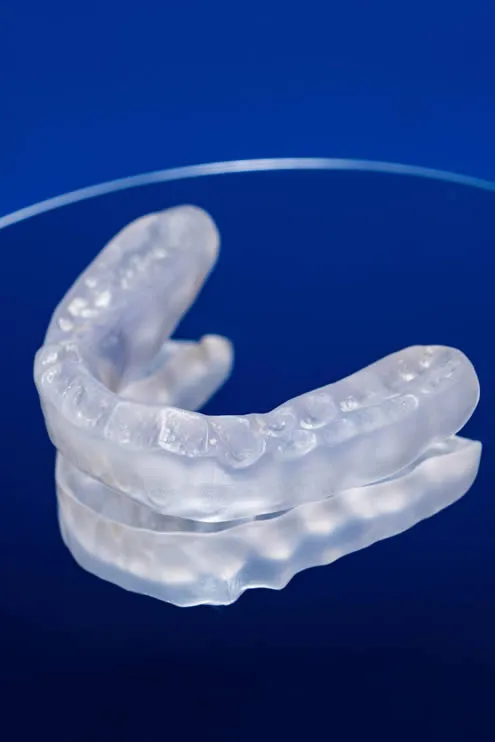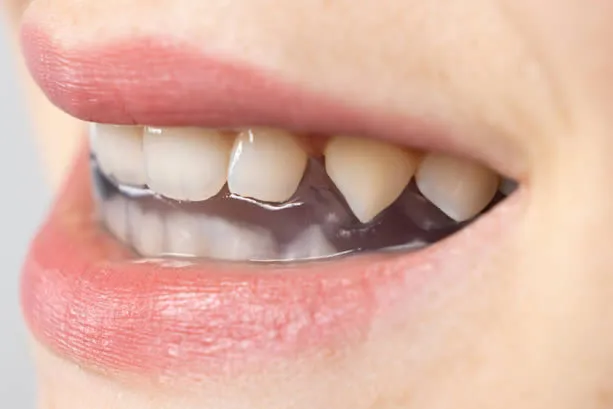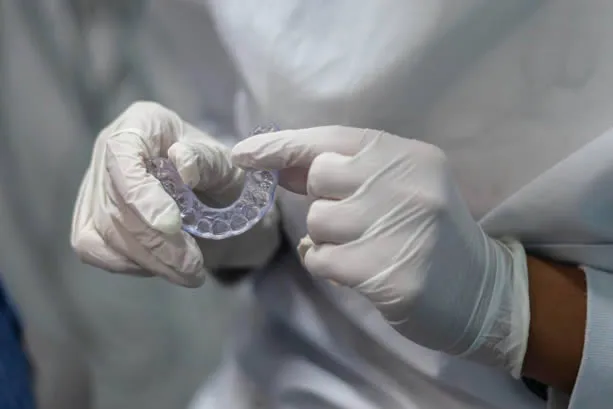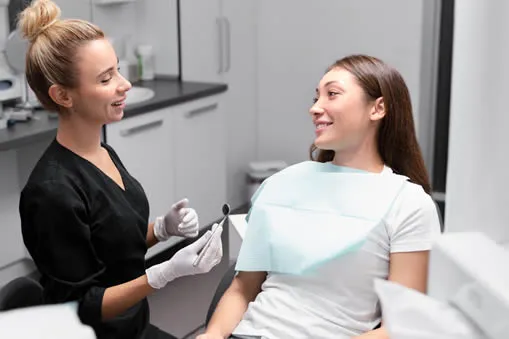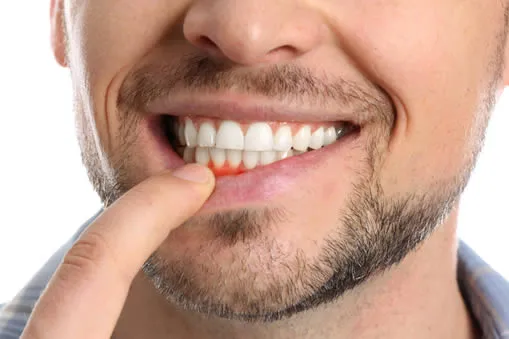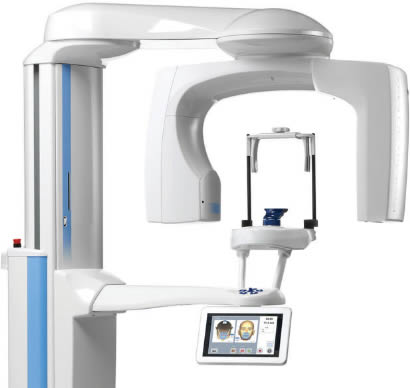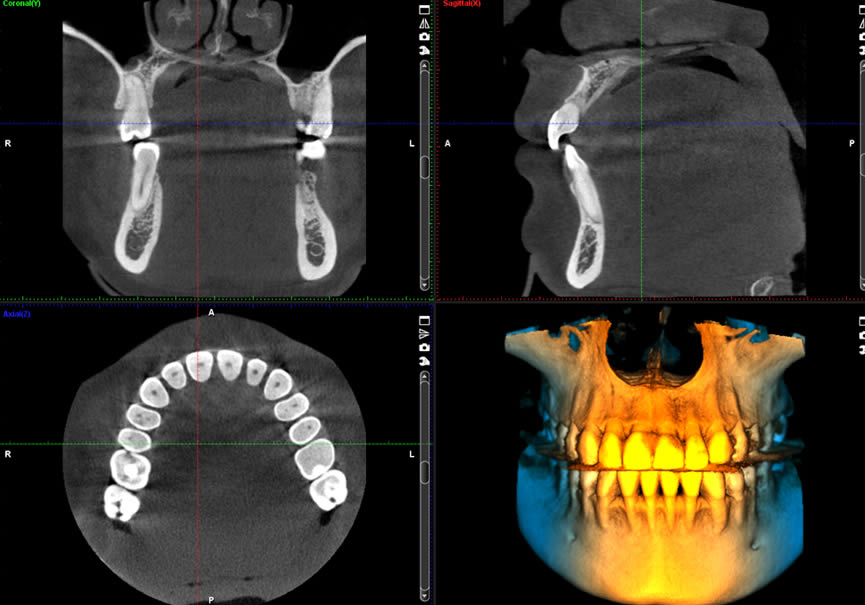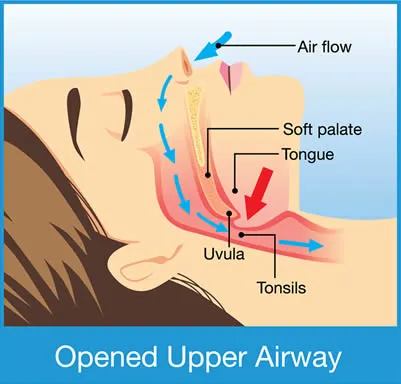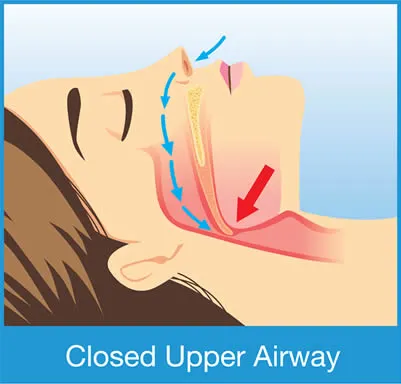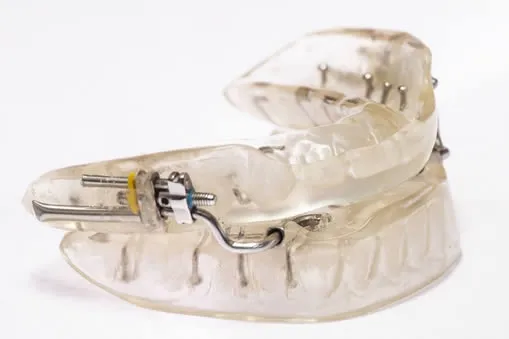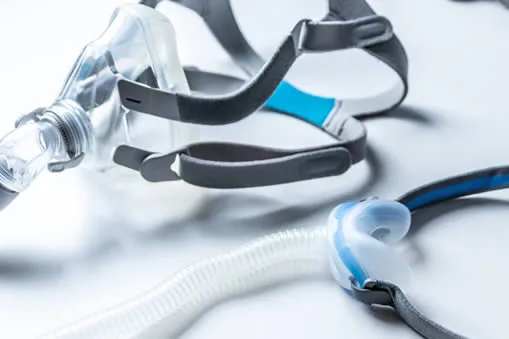Teeth Grinding Mouth Guard
Are you one of the millions of people who suffer from teeth grinding or clenching? If so, you know how painful and damaging it can be to your teeth and overall oral health. Fortunately, there is a solution – a teeth grinding mouth guard. These simple yet effective devices can help protect your teeth from damage and provide relief from the pain and discomfort caused by grinding and clenching. In this article, we’ll explore everything you need to know about teeth grinding mouth guards and how they can benefit your dental health.
What are teeth grinding mouth guards?
Bruxism is a condition in which a person grinds, clenches, or gnashes their teeth unconsciously, usually during sleep. It is a common problem that can lead to various dental and health issues, such as tooth wear, jaw pain, headaches, and even TMJ disorder. To alleviate the symptoms of bruxism, dental professionals often recommend the use of bruxism mouth guards.
A bruxism mouth guard, also known as a night guard, is a dental appliance that is worn over the teeth to protect them from the pressure and force of grinding and clenching. It is designed to create a barrier between the upper and lower teeth, reducing the wear and tear that occurs during bruxism episodes. A mouth guard can also help to prevent jaw pain and headaches by redistributing the pressure across the teeth and the jaw muscles.
Mouth guards come in different shapes, sizes, and materials, depending on the severity of the bruxism and the patient’s preferences. Here are some of the most common materials used for bruxism mouth guards:
Hard acrylic is a durable and rigid material that is suitable for severe cases of bruxism. It is custom-made to fit the patient’s teeth precisely, providing maximum protection against grinding and clenching. Hard acrylic mouth guards are also easy to clean and maintain.
Soft vinyl is a more flexible and comfortable material that is often used for mild to moderate cases of bruxism. It is also custom-made to fit the patient’s teeth but has a softer texture that molds to the teeth and gums. Soft vinyl mouth guards are ideal for people who have sensitive teeth or who find hard acrylic mouth guards uncomfortable.
we Dual laminate mouth guards combine the best of both worlds, with a hard acrylic exterior and a soft vinyl interior. This material is ideal for people who have moderate to severe bruxism and who want a mouth guard that is both durable and comfortable. Dual laminate mouth guards are also easy to clean and maintain.
Thermoplastic is a versatile material that can be molded to fit the patient’s teeth by using heat. It is an affordable option for people who have mild to moderate bruxism and who do not want to spend too much money on a custom-made mouth guard. Thermoplastic mouth guards are also easy to clean and replace.
At Heath Springs SC Dentist we will determine the type of mouth guard that is best suited for your needs. With proper care and maintenance, a mouth guard can help to alleviate the pain and discomfort of bruxism and improve your overall dental health.
What to expect when being fitted for a mouth guard
Expect a Dental Impression
First, we will take a bite impression of the patient’s teeth using a putty-like material, which will be used to create a model of the teeth. This impression is then sent to a dental laboratory where a technician will use the model to fabricate a custom night guard.
Expect a Custom Mouth Guard from the Lab
Using the model, the lab technician will use a durable and comfortable material, such as hard acrylic or soft vinyl, to create the night guard. Our dentist will specify the material based on the needs of the patient and the level of protection required.
Expect a Final Fitting
Once the night guard has been fabricated, we will adjust and shape it to fit the patient’s teeth precisely, ensuring maximum protection and comfort.
More Questions about Teeth Grinding Mouth Guards?
Contact our Heath Springs office today to schedule a consultation with our dentist. We can answer any question you have about mouth guards and address any issues unique to your specific situation. We look forward to seeing you.
What are signs that you need a mouth guard?
You may be a candidate for a custom mouth guard if you are experiencing any of the following symptoms:
- Worn or flattened teeth
- Chipped, cracked or broken teeth
- Tooth sensitivity
- Painful or sore jaw muscles
- Frequent headaches or migraines
- Ear pain or ringing in the ears
- Neck and shoulder pain
- Disrupted sleep patterns
- Grinding or clenching during sleep
- Bite marks on the inside of the cheeks
- Receding gum lines
- Loose or shifting teeth
- Braces being damaged by grinding or clenching
Contacts us at Heath Springs SC Dentist for a consult to determine if a custom mouth guard is right for you.
What are the benefits of a custom mouth guard?
There are many benefits to choosing a custom bite guard over a store-bought night guard, including:
- Custom fit: A custom bite guard or night guard is made specifically for your teeth, which ensures a comfortable and secure fit. Store-bought night guards are often one-size-fits-all, which may not provide a proper fit.
- Maximum protection: A custom bite guard or night guard provides maximum protection for your teeth because it is designed to fit your teeth precisely. Store-bought night guards may not provide adequate protection and may even increase the risk of dental trauma.
- Increased comfort: A custom bite guard or night guard is designed to be comfortable to wear, which means you are more likely to wear it as recommended by your dental professional. Store-bought night guards may be uncomfortable, bulky, or difficult to wear, leading to noncompliance.
- Better durability: A custom bite guard or night guard is made from high-quality materials that are designed to withstand wear and tear. Store-bought night guards may not be as durable and may need to be replaced more frequently.
- Professional guidance: A custom bite guard or night guard is fabricated under the guidance of a dental professional, who can provide personalized advice on how to care for and maintain the guard. Store-bought night guards often come with limited instructions and may not be as effective.
A custom bite guard or night guard is a worthwhile investment in your dental health and can provide superior protection and comfort compared to store-bought options. Give us a call at Heath Springs SC Dentist and schedule your appointment today.
ADDITIONAL FREQUENTLY ASKED QUESTIONS ABOUT Teeth Grinding Mouth Guards
Can a mouth guard improve my breathing during sleep?
Yes, certain types of mouth guards can be designed to help improve breathing and help treat mild to moderate sleep apnea by repositioning the lower jaw or opening up the airway.
Can a mouth guard cause my teeth to shift?
No, a mouth guard is designed to prevent teeth from shifting due to grinding or clenching.
Can a mouth guard be worn with dentures?
Yes, a custom mouth guard can be designed to accommodates dentures.
Can a mouth guard help with TMJ disorders?
Yes, a properly designed mouth guard can help relieve symptoms of TMJ disorders by reducing pressure on the jaw joint.
Can a mouth guard be worn during orthodontic treatment?
Yes, a custom mouth guard can accommodate braces or other orthodontic appliances.
Is there a dentist near me in Heath Springs that offers teeth grinding mouth guards?
Yes. At our Heath Springs dental office we offers custom mouth guards to patients in Heath Springs and the surrounding area. Contact our office today to schedule an appointment.
Helpful Related Links
- American Dental Association (ADA). Glossary of Dental Terms.
- American Academy of Cosmetic Dentistry® (AACD). Home Page.
- WebMD. WebMD’s Oral Care Guide.

